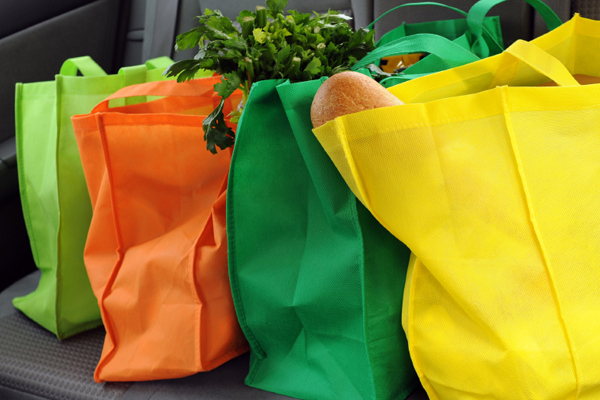We are now over one month into 2018! Whether your resolutions are standing strong or maybe need a little help, we’re here to offer some great tips to keep trying to reduce your impact and waste. It’s important to remember that resolutions don’t have to just start in January and there is always something small you can do to preserve the earth and all it offers us. This is especially important now as, according to an article written by Laura Parker for National Geographic, “Mass production of plastics, which began just six decades ago, has accelerated so rapidly that it has created 8.3 billion metric tons—most of it in disposable products that end up as trash.” While that’s a daunting number to tackle, here are a few easy ways to reduce your plastic waste in 2018.
Switch to Reusable Water Bottles and Coffee Cups
Sometimes we create plastic waste without realizing it. Shelves in many commercial stores are stocked weekly with packs of plastic water bottles and packaging. Although these bottles can be recycled, they often end up in the trash. Buying reusable water bottles can help reduce your plastic waste imprint and can save you money. It also takes away the demand for plastic water bottle if you stop buying them which can help reduce the number of water bottles produced.
While you’re switching to reusable water bottles, you might as well switch to a reusable thermos or coffee cup as well. If you start every day or even just a few days a week with coffee, think of how many disposable coffee cups that creates! Those coffee cups can’t be composted or recycled either because the inside is lined with plastic. Switching to using a reusable mug, or even deciding to take a seat and have your coffee there, will make a huge difference for the environment.
Begin Carrying Reusable Bags
In many recycling programs, plastic bags are not accepted with regular recyclables. This means recycling plastic bags may not be as accessible or convenient, leading to increased plastic waste. Instead of using plastic bags, invest in reusable bags. One benefit to this, aside from environmental benefits, is that reusable bags are sturdier; your reusable bags should not rip as easily when compared with plastic bags. If you would like to read more about which reusable bags are most sustainable, check out this article. If you forget your reusable bag, opt for paper instead of plastic because paper bags are biodegradable.
Avoid Personal Care Products that have Microbeads
The ocean is polluted by microplastics, which is the term given to very small plastic debris. Due to the Microbead-Free Waters Act of 2015 retail stores will have stopped carrying "rinse-off" microbead products starting last month. That being said, there is a loophole in this law since the act only applies to "rinse-off" products like face wash and toothpaste. Make sure to avoid all products with microbeads in them by checking out this list.
Read more about microplastics and the ocean here.
Avoid Plastic Straws
Some may look at the size of plastic straws and think the plastic waste is inconsequential, but they would be wrong. According to thelastplasticstraw.org, “In the U.S., we use 500 million straws a day...enough straw waste to wrap the circumference of the earth 2.5 times or to fill Yankee Stadium over 9 times in a year!” As discussed with microbeads, plastic is not biodegradable; it only breaks down into smaller plastic, which is just as harmful to the environment. A few options include not using a straw, using a biodegradable straw, or even buying a snazzy metal one! If you opt to not use a straw just take an extra second when you're ordering at a restaurant to say "No straw, please!" This is becoming more and more common to say especially with pledge campaigns like #SkiptheStraw.
Avoid Excess Packaging
It’s difficult to reduce your plastic waste when everything in the store seems to be wrapped in plastic on the inside, outside, or even both! There are still ways to reduce your waste, though. Buying in bulk and bringing reusable, cloth pouches are a fantastic option. Plus, buying in bulk is typically cheaper than buying packaged items!
Otherwise, trying to buy things that are in boxes versus plastic bags and opting for brands that don’t have excessive packaging are all great steps to take. This includes not wrapping your produce in a plastic bag and choosing to use a reusable bag, cloth, or nothing at all instead!
Starting with these small steps can make a great difference on the environmental impact we have on the earth. If you already practice these or want to eliminate your plastic waste entirely, then check out these resources like Zero Waste Week and My Plastic Free Life for more ways to reduce your plastic waste.
Good luck reducing your waste and know that every little bit truly does matter! We will be working with and cheering for you.




